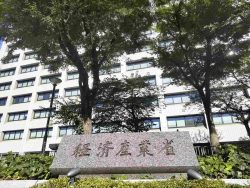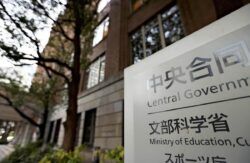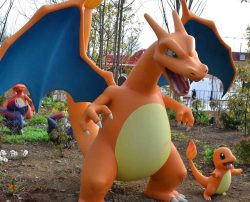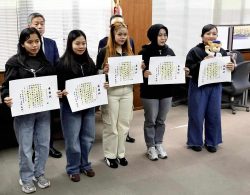13:41 JST, December 24, 2020
Cracks are beginning to spread in his hard-line policy of thoroughly suppressing domestic opposition and promoting a confrontational stance with the United States and European countries. If he fails to correct his course, his strategy for maintaining long-term power may fail.
At a press conference at the end of the year, Russian President Vladimir Putin indicated that he may continue to serve as president after his fourth term expires in 2024. A constitutional amendment in July paved the way for him to remain in office until 2036.
However, his political foundation is not that solid. Russia has the world’s fourth highest number of people infected with the novel coronavirus, and his government has been criticized for its inadequate response.
The European Union attributed a poison attack on the leader of the Russian anti-regime movement to a Russian intelligence agency and tightened sanctions against Russia. The transformation of Russia’s economic structure, which is dependent on oil and other energy resources, has not progressed either.
Putin’s approval rating is on the decline. This is probably a sign that his prolonged heavy-handed governance, which does not tolerate dissent, has left society with a feeling of fatigue.
In the Far East, protests in Khabarovsk against the detention and dismissal of the local governor, which began in July, have not yet come to an end. It is an extremely rare situation in Russia that the authorities have been unable to calm such situation.
In the former Soviet bloc, which Russia considers to be its “sphere of influence,” there has been a noticeable decline in that influence.
In the conflict over Azerbaijan’s Nagorno-Karabakh autonomous region, Armenia, which Russia supports, was defeated in battle with Azerbaijan and lost its effective control of the region. The presence of Turkey, which supports Azerbaijan, has been strengthening.
In Belarus, antigovernment demonstrations calling for the resignation of President Alexander Lukashenko are continuing with the support of the West. In Kyrgyzstan, a pro-Russian president was forced to step down, and in Moldova, a pro-Western candidate defeated a pro-Russian incumbent and was elected president.
One of the reasons for the former Soviet countries to distance themselves from Russia is that Russia is no longer able to provide sufficient support due to its economic stagnation. Putin has extended his reach even into a race for supremacy in the Middle East, and his intervention in the Syrian civil war may have also contributed to his shaky footing.
The key to resolving the situation will be Russia’s relations with the United States. Putin has expressed hope that he and U.S. President-elect Joe Biden will be able to improve their relationship. The extension of the New Strategic Arms Reduction Treaty (New START), which expires in February 2021, will be a touchstone.
Building a relationship of trust is essential for disarmament. Putin must take seriously the U.S. criticism of Russia’s development of new weapons and cyber-attacks by hacker groups.
Top Articles in Editorial & Columns
-
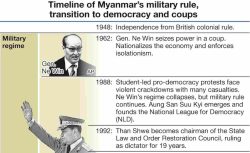
Myanmar Will Continue Under Military Rule Even After Election, Ex-Ambassador Maruyama Says in Exclusive Interview
-

40 Million Foreign Visitors to Japan: Urgent Measures Should Be Implemented to Tackle Overtourism
-

Expansion of New NISA: Devise Ways to Build up Household Assets
-
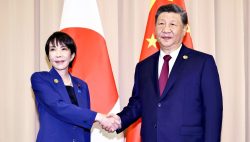
China Criticizes Sanae Takaichi, but China Itself Is to Blame for Worsening Relations with Japan
-

Withdrawal from International Organizations: U.S. Makes High-handed Move that Undermines Multilateral Cooperation
JN ACCESS RANKING
-

Univ. in Japan, Tokyo-Based Startup to Develop Satellite for Disaster Prevention Measures, Bears
-

JAL, ANA Cancel Flights During 3-day Holiday Weekend due to Blizzard
-

China Confirmed to Be Operating Drilling Vessel Near Japan-China Median Line
-

China Eyes Rare Earth Foothold in Malaysia to Maintain Dominance, Counter Japan, U.S.
-

Japan, Qatar Ministers Agree on Need for Stable Energy Supplies; Motegi, Qatari Prime Minister Al-Thani Affirm Commitment to Cooperation


